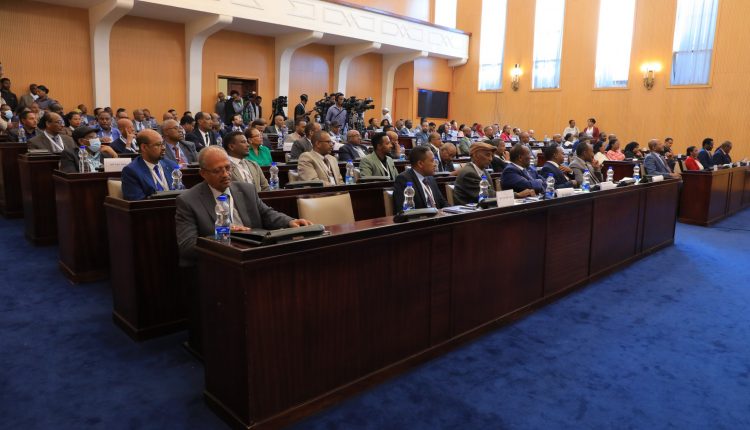Panelists say GERD beyond hydropower, pan-African project fostering integration
Addis Ababa, December 4, 2024 (FBC) – Panelists at the parliamentary citizen forum on hydro politics emphasized that the Grand Ethiopian Renaissance Dam (GERD) transcends being merely a hydropower project; rather it represents a transformative Pan-African endeavor that fosters integration among Africans.
The House of Peoples’ Representatives (HPR) today launched the first of its kind parliamentary citizen forum on hydro politics, the government and public role on GERD and its role for Pan-Africanism.
In his opening remark, House Speaker Tagesse Chafo emphasized that the Grand Ethiopian Renaissance Dam (GERD) symbolizes Africa’s efforts to eradicate poverty and promote sustainable development and prosperity.
He highlighted that the GERD will not only improve the lives of millions of Ethiopians but also foster regional cooperation through renewable energy, thereby stimulating industrialization.
Additionally, the Speaker underscored that Ethiopia’s commitment to prioritizing diplomatic dialogue grounded in mutual benefit and respect.
Government Chief Whip at the HPR, Tesfaye Beljige said that GERD is not only a hydropower project; it is also a Pan-African project that fosters economic integration among Africans.
Regional economic integration project is one pillar of Pan-African sentiment, he said, adding that GERD symbolizes regional integration, corporation and defies pessimism against Africans.
“GERD is not only a project that produces energy but also a testimony of Ethiopia’s Pan-Africanism advocacy towards cooperation and regional integration.”
Tesfaye stated that GERD is an emblem of cooperation towards mutual development and prosperity while defied the erroneous and pessimist thought against Africans, underscoring that Ethiopia has already started sharing energy and benefiting its brotherly neighboring countries.
GERD, the largest hydropower project in Africa nearing its completion, is a tremendous achievement in disproving centuries old pessimism against African capability, he elaborated.
Moreover, Ethiopia’s quest for sea outlet could also be solved in the framework of economic cooperation and integration among Africans, Tesfaye noted; stressing that legacy of colonial past shouldn’t be source of conflict among Africans.
Renowned Hydro-Politics Scholar, Yacob Arsano, on his part addressed the historical contexts, conflicts, and challenges related to water diplomacy in the context of Ethiopia.
Yakob said that Ethiopia has faced significant diplomatic pressures to manage its water resources and ensure that the GERD project does not lead to conflict.
Highlighting how Ethiopia has navigated various challenges concerning the construction and operation of the GERD, he said the successful development of the GERD is seen as a result of government determination, public participation, and strong diplomatic efforts.
The construction of the dam is expected to create substantial opportunities for electrical power generation, benefiting Ethiopia and neighboring countries, he noted, emphasizing the need for all institutions, including universities, to play their part in protecting Ethiopia’s national interests in water diplomacy.
The unaddressed issues surrounding Ethiopia’s maritime policies, particularly regarding the Nile, are underscored as significant challenges.
The forum emphasized the need for all institutions, including universities, to play their part in protecting Ethiopia’s national interests in water diplomacy including access to sea outlet.
Member of Parliament, Tofiq Abdulahi on his part said that GERD is portrayed as a symbol of national unity, resilience, and reflects Ethiopia’s leadership commitment to development and regional integration.
He explained the complexities and critical nature of Ethiopia’s water diplomacy, especially in the context of the GERD, while underscoring the need for collaborative regional approaches to water resources.
Tofiq stated that enhancing regional cooperation among Nile basin countries and continued efforts of fostering collaboration would address the rights and needs related to water usage over Nile River as well as to address shared concerns, as called by local newswire service ENA.


